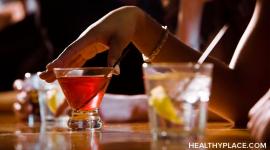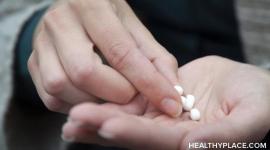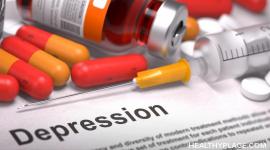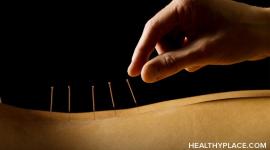Complementary Therapies for Depression
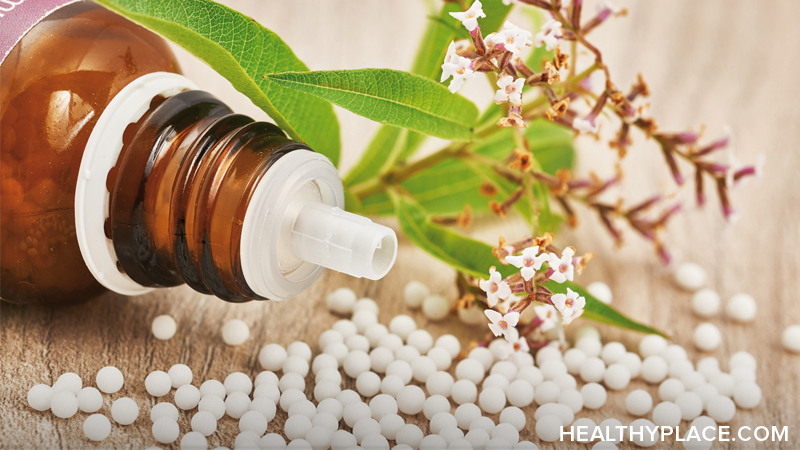
Overview of complementary therapies for treating depression including herbal medicine, nutritional therapy, acupuncture, psychological therapies, light therapy, self-help.
Depression is a psychological state of dejection or melancholy that can also have physical symptoms. It affects almost all of us at some point in varying degrees from feeling 'low' to suicidal.
In this article
What to look for
Common signs of depression include negative feelings, self-doubt, misery, tearfulness, feelings of hopelessness and dejection, fatigue, sleep disturbance, loss of appetite, mood swings, headaches, aches and pains, and loss of sex drive. In severe cases, suicidal thoughts are common.
Causes
Depression often stems from anxieties about work, money, health and relationships - or it may be triggered by bereavement. It can also have a physical cause such as nutritional deficiency or hormonal imbalance and may be experienced by women after they've had a baby or as part of the menstrual cycle.
Poor diet and lack of adequate rest, relaxation and exercise can also play a part. Depression may also be triggered by a lack of exposure to sunlight during the winter months. This type of depression is known as seasonal affective disorder (SAD).
Orthodox treatments
Doctors often prescribe antidepressant medication for moderate to severe depression. In milder cases counselling, psychological therapy or psychotherapy may be recommended along with exercise, lifestyle and dietary changes.
Complementary approaches
-
Herbal medicine - St John's wort has been clinically proven to relieve mild or moderate depression. (However, it shouldn't be used by anyone taking the contraceptive pill as it may render it ineffective).
-
Nutritional therapy, dietary change - correcting nutritional deficiencies, balancing blood sugar levels and improving diet can significantly help lift depression. The role of certain amino acids may also be significant. Consult a nutritionist for advice.
-
Acupuncture - traditional acupuncture treatment or electro-acupuncture can ease depression. Some studies found it was superior to antidepressant drugs and had fewer side effects.
-
Homeopathy - various remedies may help: ignatia is often used to ease grief, pulsatilla may relieve tearfulness, sulphur is often indicated for despair and aurum met. is used for suicidal feelings. A qualified homeopath can advise on the most suitable remedy and dosage.
-
Psychological therapies - cognitive behavioral therapy and relaxation training can relieve depression. Research has shown that listening to music can also help.
-
Reflexology, meditation and yoga - have been used in the treatment of depression but have yet to be tested by research.
-
Magnetic and electrical stimulation - transcranial magnetic stimulation can significantly improve depression without side effects. Gentle electrical stimulation, with low-level currents passed through electrodes over several hours, combined with hypnotherapy can relieve sleep disturbance and depression.
-
Light therapy - exposure to bright light and the use of lightboxes can help people suffering from SAD.
Self-help tips
-
Don't bottle up your feelings and hide away. Find someone to talk to about your problems. Avoid spending long periods alone.
-
Eat a healthy diet with plenty of fresh vegetables and wholegrains. Avoid sugar, junk food, alcohol and coffee. Try supplementing with vitamin B complex, magnesium and folic acid.
-
Essential oil of clary sage has an uplifting effect and is said to ease depression. A few drops can be added to bathwater, placed on a tissue or pillow, or added to a bowl of steaming water and inhaled.
-
Some Bach flower remedies, including sweet chestnut, mustard and Rescue Remedy, are often used for depression. Place four drops in a tumbler of water and sip throughout the day.
-
Take regular, moderate exercise. Yoga, meditation and relaxation techniques can also help.
APA Reference
Staff, H.
(2008, November 21). Complementary Therapies for Depression, HealthyPlace. Retrieved
on 2026, March 3 from https://www.healthyplace.com/alternative-mental-health/depression-alternative/complementary-therapies-for-depression
